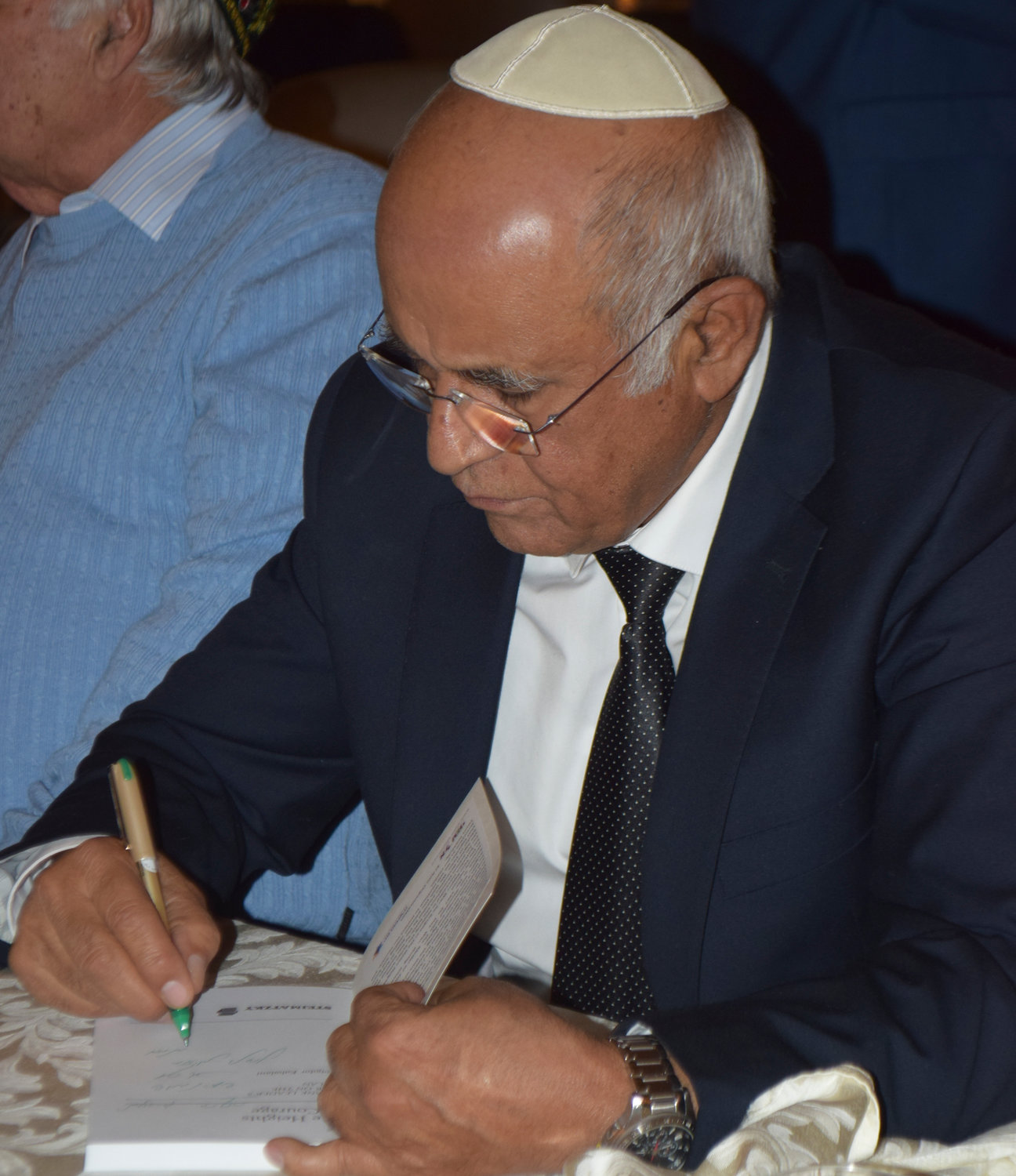Bringing people to the heights of courage
Israel Defense Forces soldiers tell their life stories at the Marion & Aaron Gural JCC in Lawrence
Two men, whose families originated from a pair of distinctively different countries and have fought for the Israel Defense Forces, recounted their experiences as roughly 100 people listened intently as part of a program the Marion & Aaron Gural JCC sponsored on Nov. 19, at its Harrison-Kerr Family Campus in Lawrence.
Brigadier General (Ret.) Avigdor Kahalni and Major Shlomi Becha were two of the seven that were part of what was called the wounded soldier delegation that had spoken at schools, including Davis Renov Stahler Yeshiva for Boys in Woodmere and Rambam Mesivta High School in Lawrence, and other institutions and organizations in the metropolitan area since Nov. 12.
Kahalni, 74, whose family came from Yemen and settled in Palestine, had 60 percent of his body burned while commanding the 77th Tank Battalion to victory over Syria in the Golan Heights as a lieutenant during the Yom Kippur War in 1973.
Becha, 40, left his native Ethiopia at six years old, came to the United States for a brief turn around as part of a program, which then sent him on to Israel, where he was adopted by an Israeli family originally from Poland. He fought in the Second Lebanon War in 2006. Major Ofir Anidjar, Noam Dadon, Daniel Friedmann, Amit Maoz and Sivan Ron, were also part of the delegation.
“In Israel there was the most optimal conditions to succeed in life,” said Becha who was injured when a pair of bullets sliced through his body during a house search. “Israel, it’s not a perfect country, but it’s our country.”
Kahalni, whose book “The Heights of Courage: A Tank Leader’s War on the Golan” was available for purchase and signing, said his family left Yemen, a nation at the southern end of the Arabian Peninsula, roughly 100 years ago. He grew up in a house behind the Arab neighborhood in his community.
A company commander in the Six-Day 1967 War, Kahalni noted the constant danger Israel faces and the significant difference between the Jewish state and the U.S. military as it takes the American military 30 days to marshal its forces, while Israel has less than 24 hours because, “anything more and we lose the country,” he said.
He was sent to the Golan Heights in 1973. Just before the battle where he was burned, he attended his brother’s wedding, Kahalni said. A video, put together with photographs from the time, showed him in the hospital and his recuperation. “Burns are the worst kind of pain,” he said in the video voice over.
In the battle, the brigade commander and Kahalni’s deputy were killed, but the heroic stand helped Israel win that brief, but bloody war. “After four days of no sleep, no food, I saw that my body was burned badly, but we held the line,” he said. Kahalni was awarded the Medal of Valor, Israel’s highest honor.
Many in the audience appeared stimulated by the men’s stories, but no more so than Yehoshua Wiesel, 10, a fifth-grader at the Hebrew Academy of Long Beach in Woodmere. “I learned that no matter the feelings in your heart nothing should bring [Israel or the Jewish people] down and we have to stay strong,” said Wiesel, who added he will tell his peers that the IDF soldiers are “really brave.”
Israel’s military personal will have to remain brave as Kahalni, a politician, he served in the Knesset, as well as a military man, highlighted Israel’s position. “We are looking for peace, but we are not naïve, there will be no peace,” were his parting words.

 45.0°,
Mostly Cloudy
45.0°,
Mostly Cloudy 




